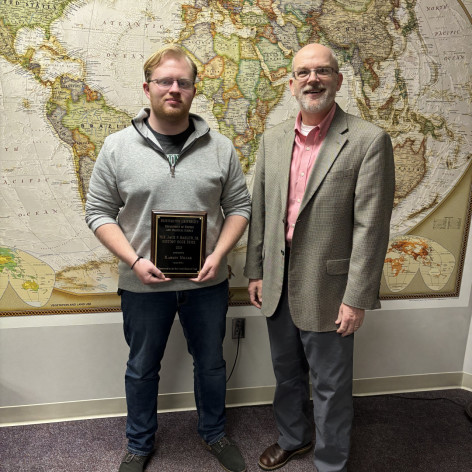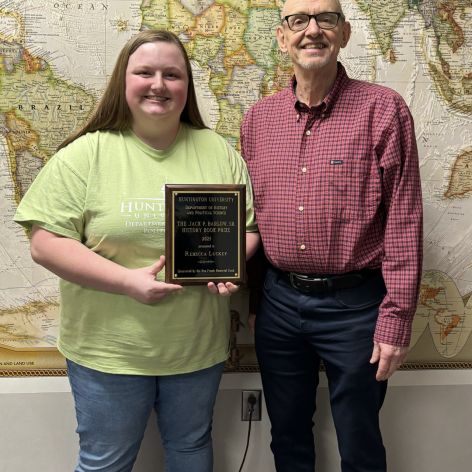An inside look at a nursing visit day
FOR RELEASE: Wednesday, March 20, 2013
The Huntington University Nursing Department played host to eight prospective students during the spring semester visit day on Feb. 8. During their visit, students toured the campus and the state-of-the-art nursing department, had lunch with students and professors and attended a question and answer panel. The students, along with their parents, asked questions from dorm safety to what makes the nursing program worthwhile. They got a tour of the computer lab, where much of the current students testing take place. They toured the main nursing lab, complete with eight bed bays with headwall components, 11 simulated mannequins including SimMan, and advanced patient simulator.
Senior Anna Carpenter and juniors Lindsay Shellanbarger and Kaitlyn Boner were overflowing with wisdom for the students.
"Don't let your doubts stop you, keep pushing through, from seniors to professors, we all want to help," Carpenter said, boasting of the encouragement she receives all through their department. "Take advantage of your professors, call, text, email. They are always there for us."
Visiting students asked about the level of difficulty in the nursing department and how typical classes are arranged.
"Classes will challenge you to ask why you think what you think," Shellanbarger said.
Students also describe their clinical rotations and what those required hours looked like.
"Clinicals can help change the assumptions and stereotypes, it can help change your attitude on a particular area," Boner said, explaining that students will start out at a nursing home to get their feet wet in the field and then move onto obstetrics and then psychology and mental health.
All nursing students start out with a clinical adviser who works right alongside the students, as they progress in the program, they are passed on to a primary nurse.
"Students are required to have all their skills checked off in our lab setting before they are sent out onto the floor," said Dr. Margaret Winter, director of nursing.
Parents asked about graduation and what happens at the end of the four years. They also asked how students are prepared to enter the "real world."
"We go through role transitions," Carpenter answered. "You get trained like an employee, you get watched and corrected. You take on the hours of your supervising nurse."
"We have fun. It sounds scary, but because we are small you get really close and we help and build each other up," Boner added. "We work together combining our strengths and weaknesses."



